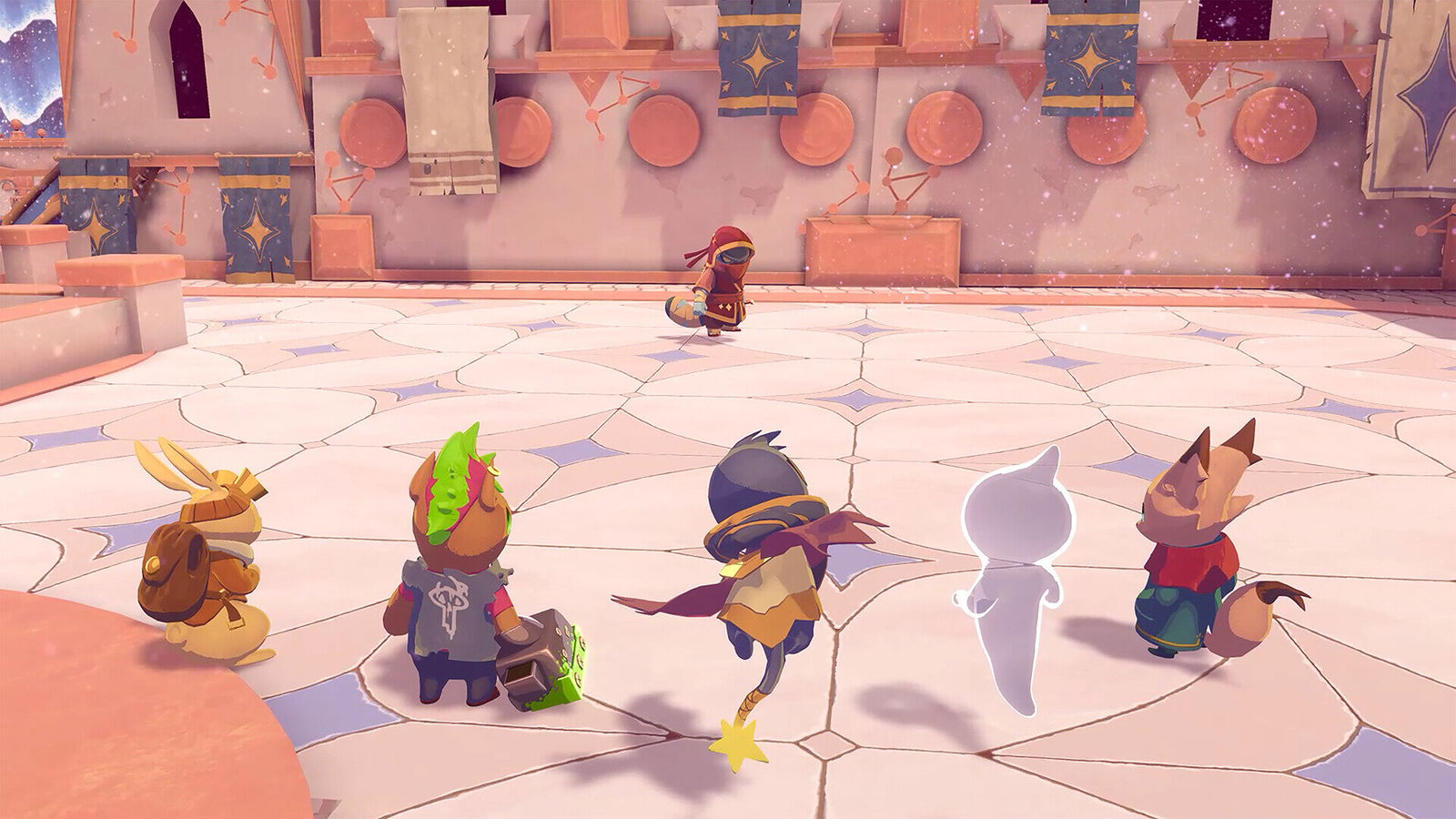At first, I thought this would be a cute, top-down version of Castle Crashers with a puzzle element, but I was surprised to know how much more lore and world-building this ARPG contained. Immediately, I was swept into this world by its eye-grabbing watercolour art and soft animation style on my PC monitor. DON’T NOD is proud to present The Lonesome Guild, a vibrant and heartfelt action RPG that explores the power of togetherness in a world struggling with loneliness.
Tiny Bull Studios is an indie game studio based in Torino, Italy, passionate about experimenting with design and storytelling. The overarching story and themes were inspired by the deep sense of loneliness many felt during the COVID-19 pandemic. The core concept behind The Lonesome Guild is “togetherness,” using connection and friendship as tools to overcome isolation. This theme is at the heart of both the narrative and the gameplay.
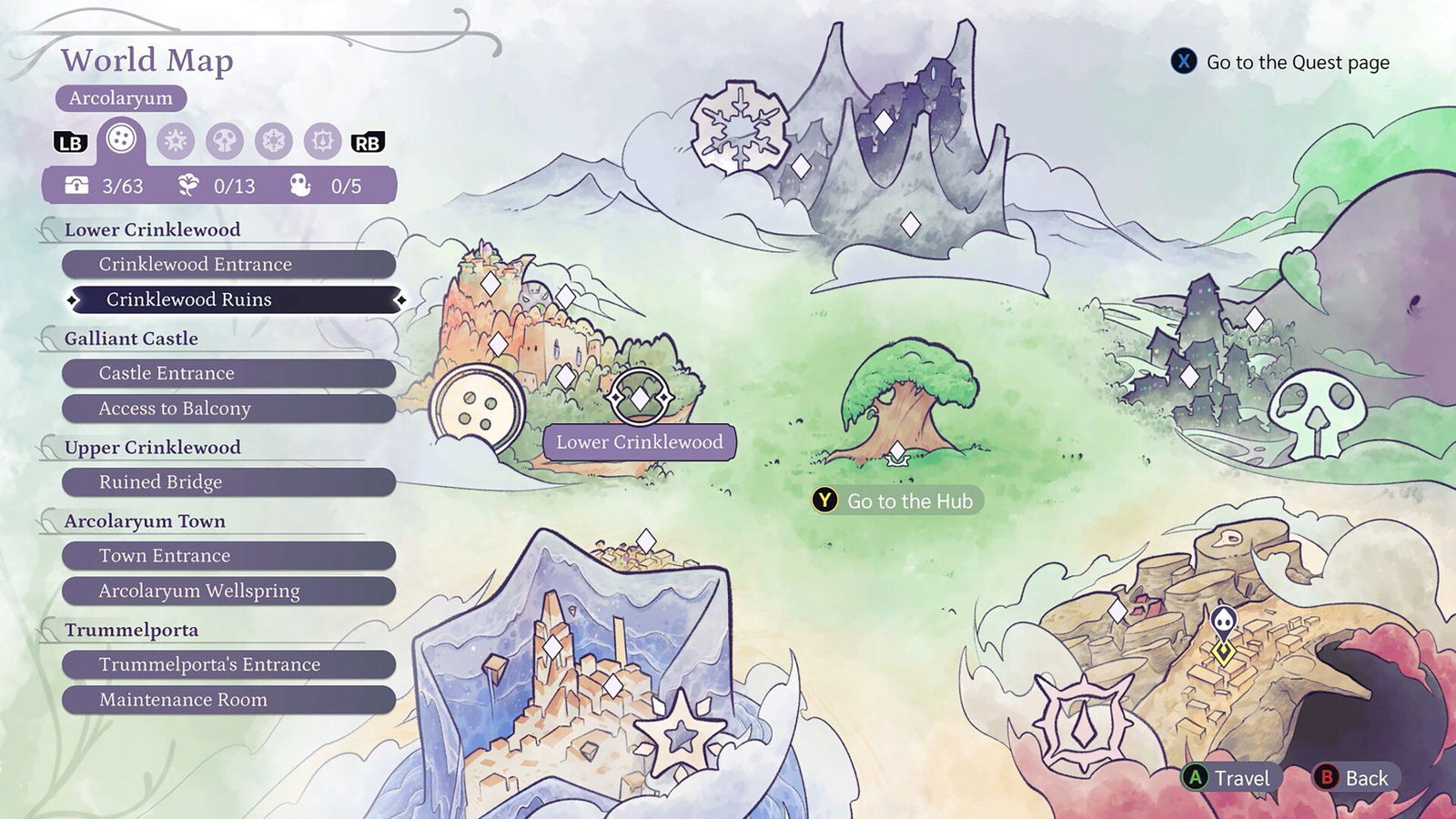
The story follows multiple characters, each representing a different kind of loneliness. As their paths intertwine, they form meaningful relationships and confront their inner struggles. The developers said they wanted to explore the idea that loneliness and togetherness are two sides of the same coin — that loneliness isn’t something to fear or avoid, but something to acknowledge, accept and grow through. This concept also runs through the general gameplay, where players must work together to solve puzzles.
“The Lonesome Guild carries a great deal of charm through its character designs, despite the story’s darker underlying themes.”
The first few characters players meet are a bunny inventor named Davinci and a wisp-like ghost that Davinci nicknames Ghost. Soon after, players gain a new party member named Mr. Fox. The trio becomes the core group for much of the first part of this preview build. The Lonesome Guild carries a great deal of charm through its character designs, despite the story’s darker underlying themes. The names can be a little on the nose, but remain cute nonetheless.
The double-edged sword of The Lonesome Guild is its branching story and world terminology. A casual player may feel overwhelmed by all the names, such as Noellis Ark and Etere. This simply means players must approach the game with an open mind for adventure and immersion. Etere is full of charm and secrets, mysteries and treasures to uncover. From unearthing old ruins to gathering around campfires in the forest, there is always something new around the corner.
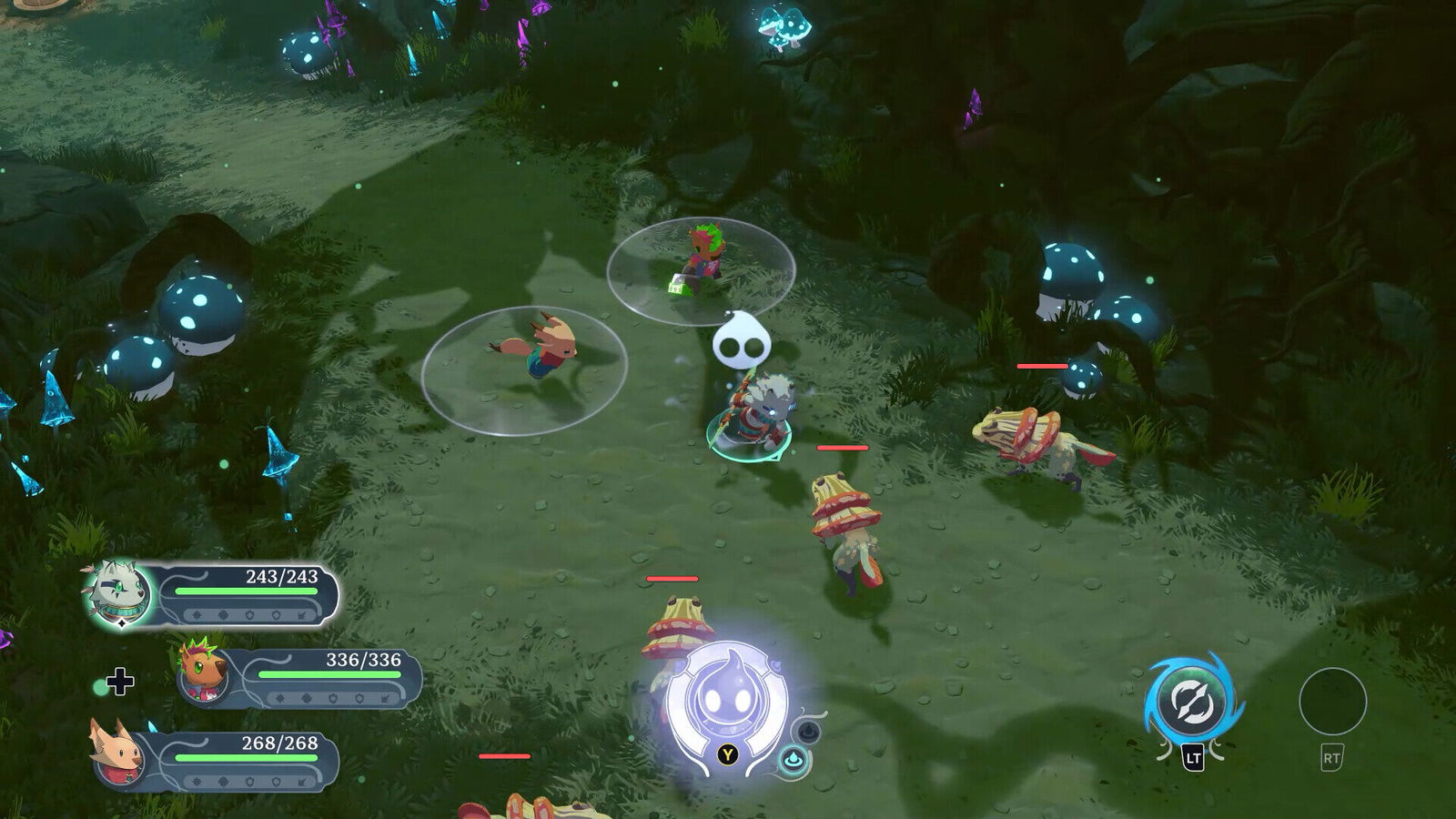
The Lonesome Guild caters to different types of players, offering three difficulty levels: Story Mode, Normal and Hard. I played on Normal, though those who prefer the rich storytelling and visuals may want to choose Story Mode. My only critique of the combat system is the enemy level progression. Some early grunt-level enemies take far too many hits to defeat for a level-one encounter, when the game is still teaching basic mechanics. Either early enemies should have less health, or the player should be able to deal more damage at that stage.
“…The Lonesome Guild is visually charming with its attention to environment and character design…”
What I appreciated about the combat system was how dynamic it felt, and it never pigeonholes the player into using only one character. In fact, the support combat feature and switching for an Emblazed power-up encourage you to switch characters mid-combat for temporary stat buffs. If it were any other top-down party action game like a Marvel Alliance game, I would be sticking to my favourite Marvel character. Theoretically, you could boost the stats for only one character in The Lonesome Guild, but you would be nerfing your team as a whole in the long run. The skills and AOE ultimate attack were classic ARPG features, but this game made them feel really intuitive—not trying to reinvent the wheel.
Speaking on teamwork, I like that the save points are like bonfires or a site of grace in the Souls games. The campfire talks also reminded me of Clair Obscur: Expedition 33’s main party area, since characters can deepen their bonds here as well in The Lonesome Guild. The game stresses the importance of teamwork and relationships to its core, and I think that is wholesome AF.
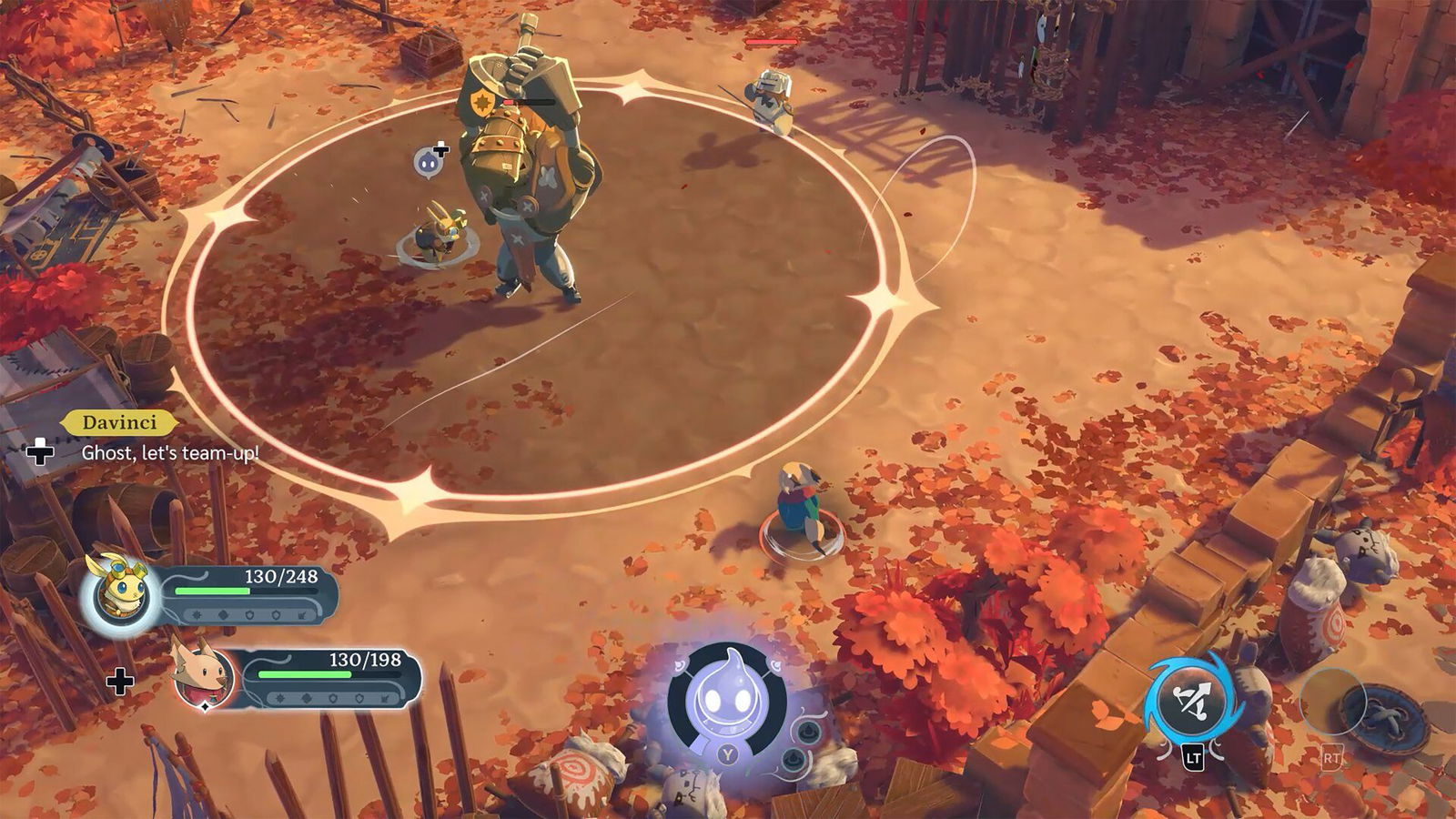
These campfire chats among the characters help build Relationship Points and advance their individual skill trees. The dialogue is not meaningless or just a quick respite — slightly cheesy for my palate, but endearing nonetheless. Players also assume the role of Ghost at the campfire, choosing dialogue options during conversations. This was a surprising choice, giving players some decision-making agency.
Building on player agency, the UI for the leveling system, quests, party members, and inventory reminded me a lot of many Pokémon games. It is simple and easy to navigate; nothing felt too clunky or filled with text. Overall, it was a clean, blue design that was easy to read and felt like I was playing an ARPG that was made on a mobile console/device, but I was playing it on my PC. Part of me is hoping this game comes out on Nintendo Switch or Switch 2.
My last nitpick with The Lonesome Guild is the number of overt and subtle biblical and religious references built into the story, wall art and world terms. A casual player may not notice them, but I found the parallels to real-life counterparts almost completely transparent. For example, Noellis Ark is a clear nod to Noah’s Ark, and the game even includes an explanation similar to the story of two of each animal boarding the ark.
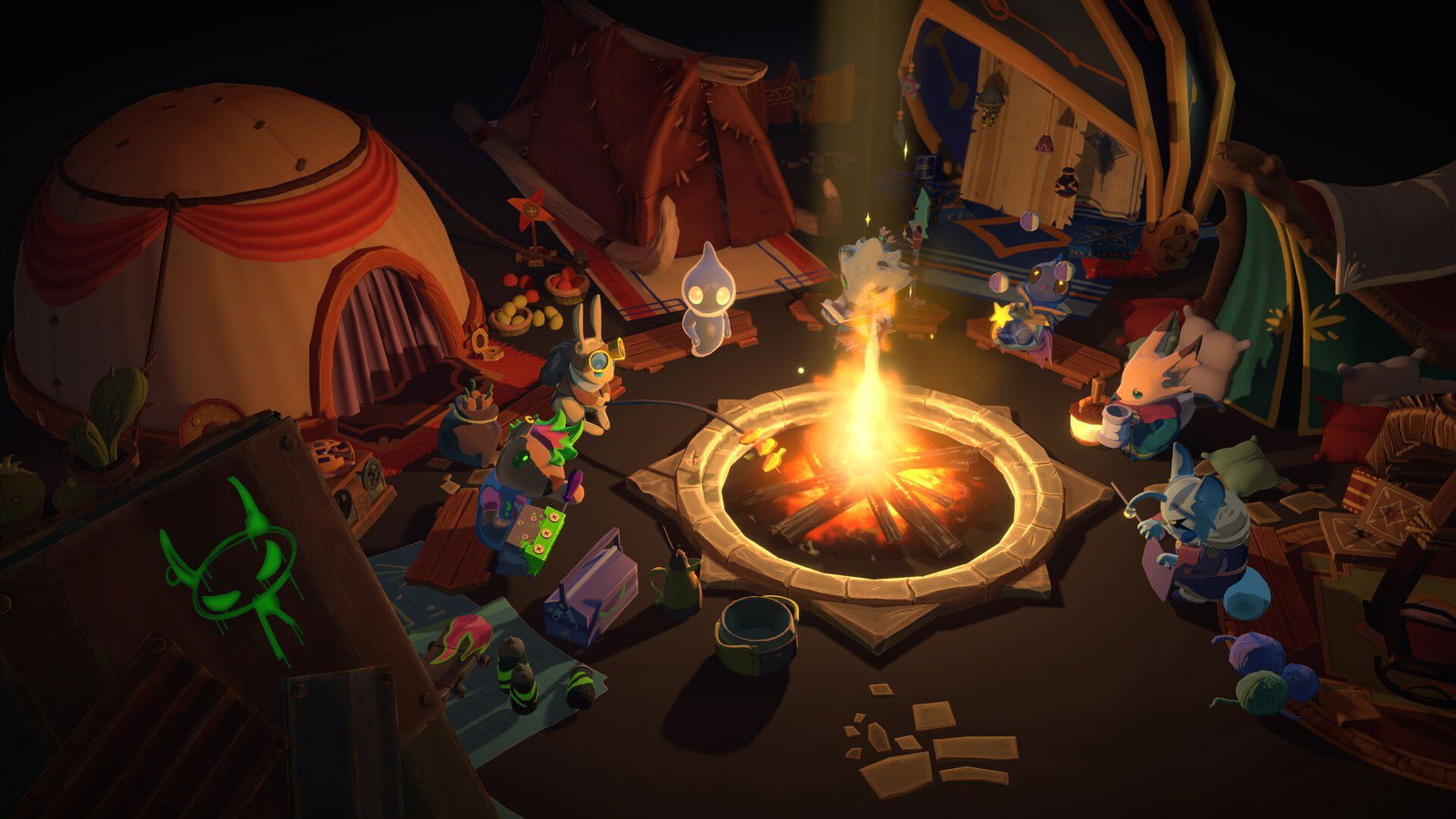
Was this enough to take me out of the experience? No. As the saying goes, life imitates art and vice versa. In this case, the art of The Lonesome Guild is visually charming, with careful attention to environment and character design. For players seeking a fairly relaxed, story-driven indie puzzle ARPG, this may be the perfect fit. The game is aesthetically gorgeous and offers enough challenges and progression to keep players earning XP without the sense of repetitively farming enemies. And be sure to keep an eye out for Easter eggs and hidden items in the bushes.
After its hands-on debut at gamescom 2025, The Lonesome Guild is now counting down to its release on Steam, Xbox Series X|S, and PlayStation 5. The game is set to come out on October 23rd, 2025.
